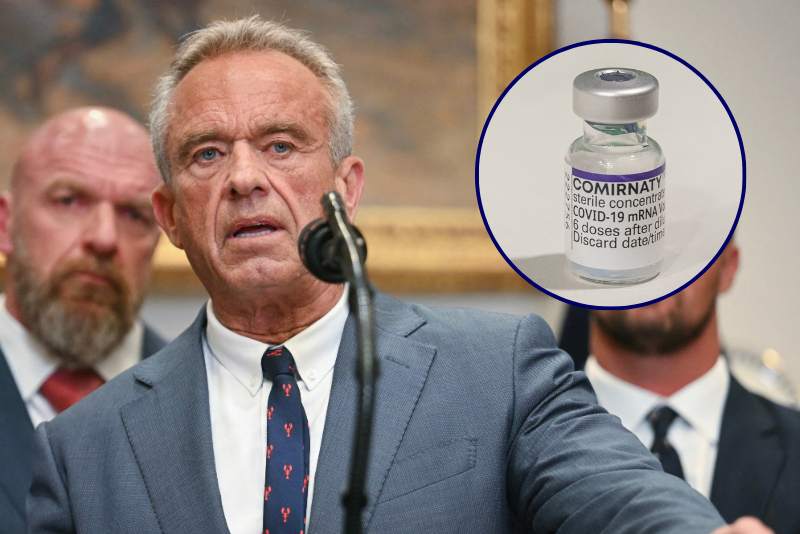
OAN Staff Brooke Mallory
1:13 PM – Wednesday, August 6, 2025
The U.S. Department of Health and Human Services (HHS) has announced the start of a “coordinated wind-down” of its mRNA vaccine development efforts under the Biomedical Advanced Research and Development Authority (BARDA).
This includes the cancellation and scaling back of several contracts and solicitations. The decision comes after a thorough review of mRNA-related investments made during the COVID-19 pandemic.
“We reviewed the science, listened to the experts, and acted,” stated HHS Secretary Robert F. Kennedy, Jr. “BARDA is terminating 22 mRNA vaccine development investments because the data show these vaccines fail to protect effectively against upper respiratory infections like COVID and flu. We’re shifting that funding toward safer, broader vaccine platforms that remain effective even as viruses mutate.”
“The wind-down affects a range of programs including:
- Termination of contracts with Emory University and Tiba Biotech.
- De-scoping of mRNA-related work in existing contracts with Luminary Labs, ModeX, and Seqirus.
- Rejection or cancellation of multiple pre-award solicitations, including proposals from Pfizer, Sanofi Pasteur, CSL Seqirus, Gritstone, and others, as part of BARDA’s Rapid Response Partnership Vehicle (RRPV) and VITAL Hub.
- Restructuring of collaborations with DoD-JPEO, affecting nucleic acid-based vaccine projects with AAHI, AstraZeneca, HDT Bio, and Moderna/UTMB,” the statement added.
While certain late-stage contracts, such as those with Arcturus and Amplitude, will be allowed to continue in order to protect prior taxpayer investments, no new mRNA-based projects will be launched.
HHS has also directed its partner, the Global Health Investment Corporation (GHIC), which oversees BARDA Ventures, to halt all mRNA-related equity investments. In total, 22 projects valued at nearly $500 million are affected. However, the announcement stated that it “does not impact other mRNA-related efforts within the department.”
“Let me be absolutely clear: HHS supports safe, effective vaccines for every American who wants them. That’s why we’re moving beyond the limitations of mRNA and investing in better solutions,” Secretary Kennedy added.
Moving forward, BARDA will prioritize platforms with well-established safety profiles and robust, transparent clinical and manufacturing data practices. Technologies initially supported during the emergency response that no longer meet current scientific or regulatory standards will be systematically phased out.
In their place, BARDA will support evidence-based, ethically sound approaches—such as whole-virus vaccines and innovative next-generation platforms.
Possible negative side effects of mRNA COVID-19 vaccines can include:
- Myocarditis and Pericarditis: Inflammation of the heart muscle or the lining around the heart, primarily in males under 30, especially after the second dose.
- Anaphylaxis: causes the immune system to release a flood of chemicals that can cause you to go into shock. Blood pressure drops suddenly and the airways narrow, blocking breathing.
Health authorities will continue to monitor vaccine safety through systems like the Vaccine Adverse Event Reporting System (VAERS) and they continue to conduct studies to assess long-term effects, according to Live Science.
Stay informed! Receive breaking news blasts directly to your inbox for free. Subscribe here. https://www.oann.com/alerts
What do YOU think? Click here to jump to the comments!
Sponsored Content Below

